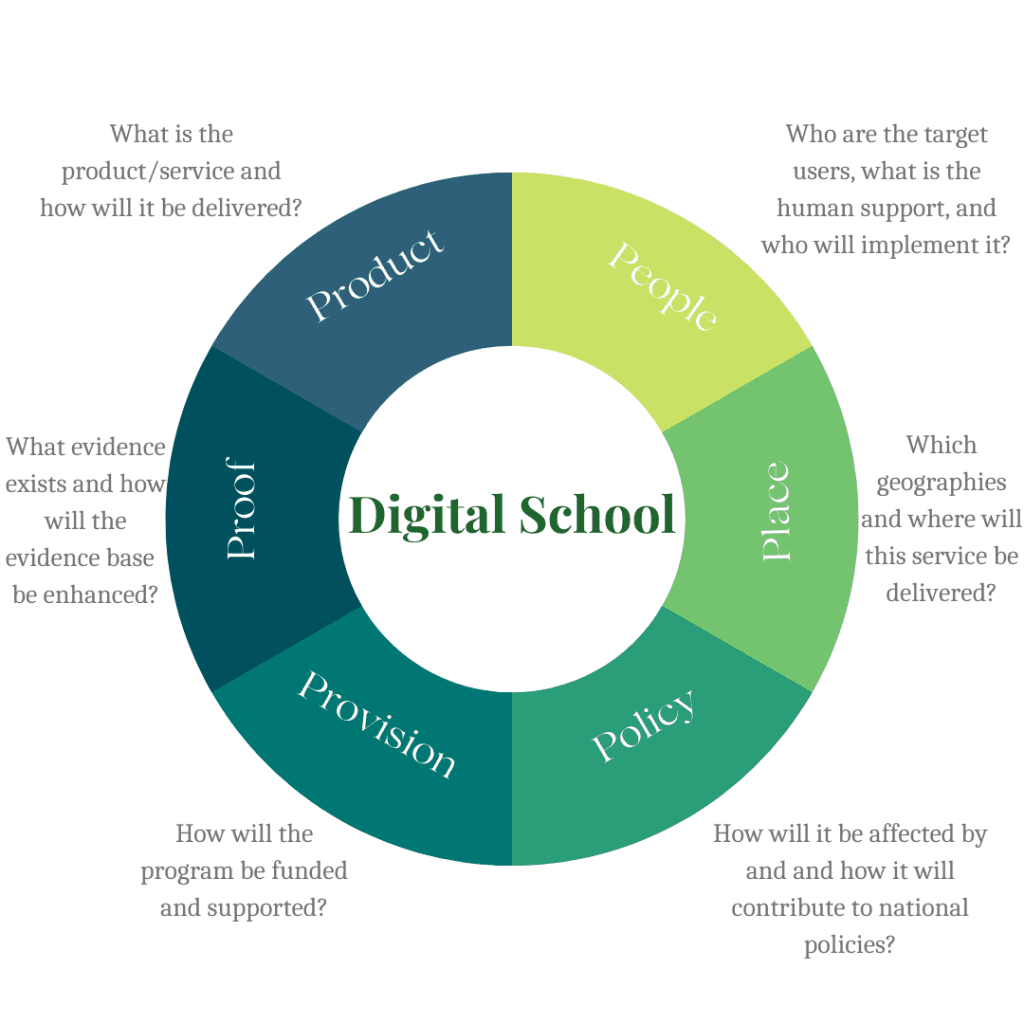Introduction
The world is witnessing massive efforts to respond to the learning crisis and the shocks felt across the education system. Alternative solutions, especially digital learning and home-based learning have gained more ground in all countries and created a reimagined method for learning systems. The emergence of digital schools marks a transformative shift in education, harnessing technology to personalize learning and enhance accessibility. As society embraces digital schools, the recognition of their ability to adapt to diverse learning styles fosters a collective realization of the need for a more inclusive and flexible educational landscape. Altamont Group stands as a beacon of expertise, showcasing a profound mastery in the seamless establishment of digital schools, redefining education through innovative technological integration. In this blog, we are going to write about digital schooling, why it is needed and lastly, see why you should partner with Altamont Group when you want to come up with a Digital School.
What is Digital School
Digital school is a term given to a school that works virtually or runs online classes. The largest disruption of education systems in history has been caused by the COVID-19 pandemic with closures of schools and other learning spaces; moreover, conflict-affected areas have been particularly hard hit. The whole education system is now running online, and the schools are also making themselves future-ready. In addition, a digital school concept provides remote learning in a smart and flexible way, where students can join from anywhere. It provides digital learning materials that are compatible with their respective national and international curricula and provides licensed teachers and their colleagues to interact through virtual classes, as well as provides a smart evaluation mechanism that helps students to self-learn, gain knowledge and skills, and obtain accredited credentials.
The graphic below paints a picture of a framework that positions the digital school within the education ecosystem:

The importance of Digital School
This is basically to answer the question, why is digital school needed? And before we get to outline the benefits of digital school, it is good to note that COVID-19 was the greatest disruptor of education systems in history. COVID-19, however, opened a window for alternative solutions, especially digital learning and home-based learning. These two have gained more ground in all countries and created a reimagined method for learning systems. It is also good to note that several electronic learning (e- learning), mobile learning (m-learning), and distance learning programs were initiated globally long before the emergence of COVID-19.
Now, the benefits of a digital school are uncountable. For instance, an individual no longer has to worry about going places to learn what they like, all they have to do is download an online teaching app and they are ready to indulge in as many courses they wish to be in. Through these mobile apps, one can learn from anywhere and at any point in time. With the coming up of this technology, anyone from any age group can learn without much difficulty and at a reasonable expenditure. People can combine courses from any field and learn them together. Professionals taking these courses are also given the ease to work and reach out to the world without any hassles.
This blog has outlined two benefits of digital school in detail. First one is, Better Networking – online education presents the students with the possibility to network with like-minded peers and teachers, across the globe. This more often than not leads to other chances or opportunities in line of partnership with their peers in the execution and completion of a project. And the second one is, Limited Geographical Boundaries – a student often had to travel great distances to obtain knowledge; but with the development of improved technology and digital classrooms, this has become less of an issue.
Challenges faced while setting up a Digital School
Setting up a digital school presents a dynamic array of challenges that encompass technological, pedagogical and logistical dimensions. The initial hurdle often revolves around securing reliable high-speed internet access for all students, ensuring equitable participation. Integrating a user- friendly and secure digital platform demands meticulous planning to address potential technical glitches and ensure smooth navigation for both students and educators. Adapting teaching methodologies to an online format, while maintaining student engagement and interactivity, demands creative pedagogical solutions. Moreover, training educators to proficiently navigate digital tools and fostering a sense of virtual community poses further challenges. Lastly, establishing a cohesive assessment framework that prevents cheating while evaluating true understanding adds another layer of complexity. Overcoming these challenges requires a holistic approach that combines technological prowess, educational innovation and effective communication.
Unforeseen events that affects traditional schools
- Pandemic: Widespread illness can lead to school closures, shifting to remote or hybrid learning and disruptions to the academic calendar
- Natural Disasters: Sudden natural calamities can damage school infrastructure, disrupt transportation and displace students and teachers
- Extreme Weather Conditions: Severe weather events like heavy snowstorms or heatwaves can lead to school closures and transportation issues.
- Terrorist Threats and Attacks: Security threats can result in lockdowns, evacuations and the need for enhanced security measures.
- Technological outages: Power outages, internet connectivity issues or cyberattacks can disrupt learning platforms and communication systems.
- Health outbreaks (other than pandemics): outbreaks of diseases like measles or flu can cause temporary closures and health concerns.
- Economic crises: Economic downturns can lead to budget cuts, affecting resources, staffing and extracurricular programs.
- Policy changes: Sudden changes in educational policies or regulations can require schools to adapt quickly, affecting curriculum, assessments and operations.
- Epidemics in nearby areas: Diseases spreading in neighboring regions can lead to temporary closures or heightened health precautions.
It’s important for schools to have contingency plans in place to address these unforeseen events and ensure the safety and wellbeing of students, staff, and the overall educational process.
Altamont Group is the best partner in Digital School
Our comprehensive expertise streamlines the establishment of digital schools, offering tailored solutions that navigate challenges seamlessly from robust technological integration to pedagogical adaptation ensuring a successful transition to the digital learning landscape.
Altamont Group is a boutique investment and advisory firm that offers strategic and implementation expertise to many leading organizations globally. EdWorX, which is Altamont Group’s US-based partner, offers consultancy services in North America; and FleXademy, which is Altamont Group’s affiliate, offers learning solutions globally. Altamont Group offers the following services: Monitoring,
Evaluation, Research and Learning; eLearning/Capacity Development/Training/Workshops; Strategic Planning & Policy; and Accreditation & Quality Assurance.
Moreover, Altamont Group has a robust team of experienced consultants and specialists, who have extensive experience across K-12 education, TVET, and continuous/higher education across the formal and informal learning sectors.
Now, why partner with Altamont Group when you think of Digital School? Altamont Group has a deep education industry knowledge as well as strategy development expertise for the education, NGO, international organizations, and government sectors. Altamont Group understands the essential elements required to develop, launch, and implement such an initiative (Digital School). It also understands how a good strategy to implement such initiative should be curated and
crafted. Altamont Group appreciate that the strategy needs to provide an externally facing, visual outline of activities1 that is aspirational, designed to inspire stakeholders, and demonstrates how the Digital School organization should work towards its vision, purpose, and goals. And that the strategy must be built upon a sound business model. The aim of Altamont Group is to provide the Digital School with an effective strategy that:
- Guides choices and decision-making,
- Articulates goals and objectives,
- Provides a clear roadmap, and,
- Sets priorities
Lastly, over the years, Altamont Group has been able to partner and work with global organizations such as the World Bank, NATO, UNESCO, UNICEF, UNHCR, CAMFED, the Global Innovation Fund, INEE, and Mercy Corps. Altamont Group also works extensively with governments including the US Secretary of State, the Kingdom of South Arabia, Global Affairs Canada, and the UAE to name a few. Finally, and this is to show our impeccable expertise. Altamont Group’s clients tend to be repeat clients, illustrating that AG’s approach and their unique expertise are highly valued.
Conclusion
In an ever-evolving world, the adoption of digital schools emerges as not just a choice, but a pressing necessity. The unpredictable nature of events as highlighted by unforeseen disruptions like pandemics, natural disasters and societal shifts, underscores the urgency for a flexible and resilient educational approach. Digital schools not only provide a means of continuity during crises but also empower education to transcend boundaries, reaching students regardless of location or circumstance. In this transformative journey, seeking the services of Altamont Group stands as a strategic advantage. With a proven track record in digital school setup, we offer an unparalleled amalgamation of technological prowess, pedagogical innovation and operational acumen. Our expertise not only addresses the challenges of transitioning to digital education but also ensures a seamless integration that maximizes engagement, personalization and inclusivity. As the world continues to reshape the landscape of education, the imperative to adopt digital schools becomes more evident. With Altamont Group, this transition becomes a transformative journey that transcends challenges, embraces opportunities and paves the way for an inclusive, innovative and enduring learning environment.

